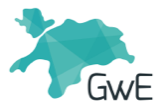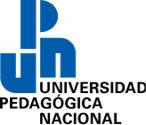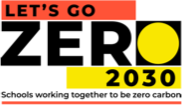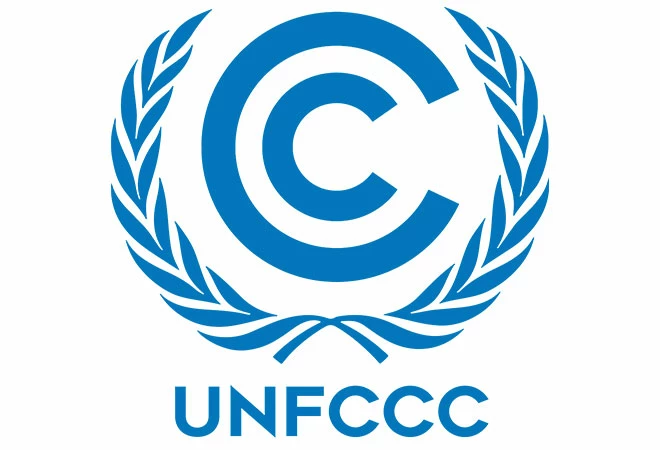One World Global Competence
From Global Learning Community to 21st Century School
Over the course of the last decade One World has grown its global competence program from one classroom in Port Chester, New York to over 200 classrooms around the world. In our view the results of this first decade of hard work can be seen in this recording which captures the virtual year-end event we held on July 30, 2020.
One World Year-End Event July 30, 2020
The event was originally intended to take place in Llangollen, Wales as part of the annual International Eisteddfod (competitive festival of music and poetry in Wales). When Covid intervened we decided to hold the event virtually.
We asked One World schools from across the world to share their experience starting with the previous year’s One World visit to Nanjing, China in April 2019.
As the Zoom call is quite long, we have pulled together a guide to the video which enables you to cross travel the world with our One World educators as they share their experiences. (Please see year-end video guide.)
For us this event marked the end of a decade of hard work of trying to build a global learning community. With this event, it became clear to us that had built a robust community of dedicated educators and students willing to look beyond their classrooms to connect students from around the world to study and even solve real world problems.
It also became clear to us that this global platform was and is impacting students and educators in powerful ways. (Please see Impact Statement.)
…21st Century School
One of our board members told us that One World is the typical “overnight sensation” that is 10 years in the making. The goal of our first decade was to build a global learning community where students and educators could learn with and from one another. The goal of our second decade is to turn our global learning community into a bona fide 21st century school where every member of One World feels as if the educators and the students in our network are their colleagues and fellow-students, no different from the colleagues and students from down the hall.
The work of connecting One World educators really began in 2019 when Professor Reimers of Harvard keynoted conferences in New York in February and November where educators from across the globe came together to discuss ways in which they could best prepare students for unprecedented opportunities and challenges of our 21st century world.
Profesor Reimers picked up on those themes again this past March in a virtual conference he delivered that was attended by close to 400 educators from around the world. The half day conference started with a lecture from Dr. Reimers that was then followed by a discussion led by Professor Reimers on how we can best use our emerging learning community to build global competence across the platform.
Session #1: Professor Reimers on Global Competence
Session #2: Discussing Global Competence with One World Educators
This event was followed up by an educator exchange on June 9th where educators from across the globe came together to continue the conversation as to how do we can make full use of One World’s global network proactively looking to build global connections now that the network is in place.
In this conference we examined the 5 principles that are at the heart of what we see at the principal challenges facing educators today and that is to prepare our students for a rapidly globalizing world of exponential technological change.
This is a theme that Peter Diamandis the author of the Age of Abundance makes clear in this video: https://www.youtube.com/watch?v=jndZviHWE28
Diamandis tells us that in an age of abundance we need to understand that we are moving from a local and linear world to a global world of exponential change.
Our thesis is that the One World network is well placed to help address this twin challenge particularly if educators and students begin to understand that One World is a 21st century school; that is a shared learning community without walls or boarders.
In an article entitled Educating for the Fourth Industrial Revolution, Professor Reimers outlines five steps that are critical to addressing this dual challenge.
- Start with the End in Mind: When developing curriculum start with an ambitious end in mind — educate global citizens.
- Leverage Improvement Networks to Design Curriculum: The second principle underlying the design of these resources is that the task of curriculum design, particularly when it involves domains that are novel or complex, is one that requires collaboration with colleagues. Professional networks have a distinct advantage as a way to leverage collective intelligence.
- Learn by Doing: The third principle is that professionals must necessarily experiment as a way of creating new knowledge. An improvement network is simply a large laboratory that allows continuous experimentation in the search for solutions to complex challenges.
- The Power of a Problem-based Education: A fourth principle is that some of the capacities necessary to thrive in the 21st century are best gained by engaging students with real problems and by inviting students to try out solutions to those problems. Increasing evidence suggests that problem-based education — that is, education that gives students opportunities to develop their agency and breadth of skills — is essential to preparing them for the demands of the Fourth Industrial Revolution.
- The Power of Collaboration in Diverse Teams: Finally, preparing students to successfully seize the opportunities of the Fourth Industrial Revolution and achieve the SDGs will require unprecedented collaboration at all levels. If there is one skill all learners will need to develop, it is the skill to collaborate.
The five principles outlined by Professor Reimers is a call for educators to teach global competence by leveraging their colleague’s collective intelligence, working within an improvement network that engages students on real world problems in a spirit of unprecedented collaboration. These five principles highlight the urgent need for the development of global learning communities like One World.
(If you are not familiar with the term the Fourth Industrial Revolution is the title of a book written by the founder of the World Economic Forum, Klaus Schwab. According to Schwab the number one challenge facing humanity is to understand and shape the technology tsunami. “Of the many diverse and fascinating challenges we face today, the most intense and important is how to understand and shape the new technology revolution, which entails nothing less than a transformation of humankind. We are at the beginning of a revolution that if fundamentally changing the way we live, work, and relate to one another. In its scale, scope and complexity, what I consider to be the Fourth Industrial Revolution is unlike anything humankind has experienced before.”)
One World’s First Global Cultural Day – Elmsford/Wales/China/Mexico
When the Elmsford school district decided to go virtual with its annual International Day celebration, One World teamed up with them to bring different cultures from around the world together in One World’s first global cultural day.
This Zoom recording captures the magic of the day that starts in Elmsford with students sharing their Korean, Indian and Latino heritage after an introduction from Superintendent Baiocco. From there the program moves to Wales, China to Mexico with each place proudly sharing their unique cultures.
These performances were bookended by a discussion on the meaning, importance and relevance of each community’s respective cultures both historically and in today’s world.
One World Global Connections
Please see Ana report.
One World Educator Exchange June 9, 2021
(The link to this conference is included in the google doc I am forwarded in the email for this document. Please also see presentation attached as well.)
As you can see from the video and the presentation, the educator exchange really focused on moving from being a global learning community to a 21st century school where our colleagues and fellow students are just a Zoom call away.
Two global projects came out of this year’s exchange. Educators confirmed their interest in working together on One World sustainability programs and agreed to take on a new project that seeks to understand what matters to students around the world.
One World’s Sustainability Program
One World has been working with the UNFCCC Secretariat over the course of the last several years. In addition to being the group at the UN charged with implementing the Paris Agreement, the UNFCCC works with organizations interested in helping advance the climate change agenda. The UNFCCC has developed a program called Climate Neutral Now that One World has brought to a number of schools in our network.
Indeed, the Port Chester school district became the first school district in the world to become Climate Neutral Now working with the UNFCCC as was reported by Lohud in this article:
Building on this success, One World has teamed up with One World country leaders in Wales, China, Mexico and the US in an effort to encourage 100 schools in each country to become Climate Neutral Now.
To that end, working with the UNFCCC, One World has held a series of webinars in an effort to promote and publicize this undertaking.
100 School Challenge Webinars with the UNFCCC
Intro Climate Change Webinar December 2020 Promoting Climate Neutral Now (CNN)
Event: https://drive.google.com/file/d/1slRgP6Aln4GlqagS7aylCQviQy1a79gv/view?usp=sharing
Follow-On Climate Change Webinar January 2021
Event: https://drive.google.com/file/d/1XheaYWDvStnBoFjrEolS5BTy8c6r2S3v/view?usp=sharing
UNFCCC Climate Neutral Now Presentation Wales
Event: https://www.youtube.com/watch?v=-7IRnDdrx7c
UNFCCC Climate Neutral Now Presentation China
UNFCCC Climate Neutral Now Presentation USA
UNFCCC Climate Neutral Now Presentation Mexico
Westchester County Green County USA Youth Conference
Our second important sustainability initiative is taking place in our home district Westchester County. We are working very closely with the Westchester County governmental team in an effort to help Westchester County become recognized as a leader in the fight against climate change. (Please see attached documents for full description.)
One World Financial Education
c program, our financial education program is primarily delivered by One World teacher/facilitators.
Following on from last summer’s success we offered our global financial education class on a global basis in the fall. We also offered the class in Lexington, Kentucky via the Lexington Police Athletic League. We also offered the class to families in Ossining, NY in both Spanish and English as well as to 5 High Schools in Yonkers, NY as part of their MBK program.
One World Technology Awareness
One World Financial Education We launched our first Technology Awarenss class this past Sunday at 8:30 am.







